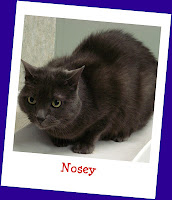Perhaps you were going to buy that cute puppy for your partner, family member, or kids.
Maybe you even considered adopting one from a shelter or humane society.
Before you purchase or adopt a pet this holiday season, think again.
Many animals that are given as Christmas Presents, end up in shelters all over the country because the person who received them was either not ready for a pet, did not take the time to train them, or they were unaware of the costs involved in raising a puppy or kitten. Vaccinations, deworming, food, health care, training, and toys - all cost - and they can add up pretty fast. Be sure these costs are taken into consideration before you get a new pet.
If you have any questions about getting a pet, discuss it with your veterinary health care team before you make that commitment. Pets are a lifetime commitment and should never be given as a present.
 |
| Click image to enlarge. |

































